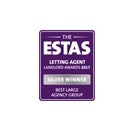Given the turbulent year we’ve had, it’s not surprising that many landlords are still uncertain if the new EICR regulations apply to their properties.
The simple answer to this problem is, yes, all EICR certificates should now be in place. This means that landlords now have to make sure the electrical installations in their rented properties are safe.
The importance of these regulations goes without saying. The safety of tenants should always be a top priority. We’ve outlined the specifics of the new regulations below.
Regulations
The Electrical Safety Standards in the Private Rented Sector (England) Regulations 2020 came into force on 1st June 2020. This applied to all existing tenancies from 1st April 2021. These new regulations form part of the Department’s wider work to improve safety in all residential premises, particularly in the private rented sector.
Frequency
The new regulations require landlords to have the electrical installations in their properties inspected and tested by a person who is qualified and competent. This inspection must take place at least every 5 years.
Landlords have to provide a copy of the electrical safety report to their tenants, and to their local authority if requested.
What to look out for
Inspectors will use the following classification codes to indicate where a landlord must undertake remedial work.
- Code 1 (C1): Danger present. Risk of injury. The electrical inspector may make any C1 hazards safe before leaving the property.
- Code 2 (C2): Potentially dangerous.
- Further Investigation (FI): Further investigation required without delay.
- Code 3 (C3): Improvement recommended but not required.
Remedial work
Remedial work will be required if codes C1 or C2 are identified in the report. The report will state the installation is unsatisfactory for continued use.
If the report shows that remedial work or further investigation is required, landlords must complete this work within 28 days or any shorter period if specified as necessary in the report.
If you’re still unsure of certain regulations, it’s best to consult the government’s guide for landlords. You can also give your property manager a call to discuss how they can help you stay compliant.









